Every Bethesda RPG, ranked from worst to best
If you think we won't sneak in a sly reference to New Vegas just because it's not a Bethesda RPG you don't know us very well.
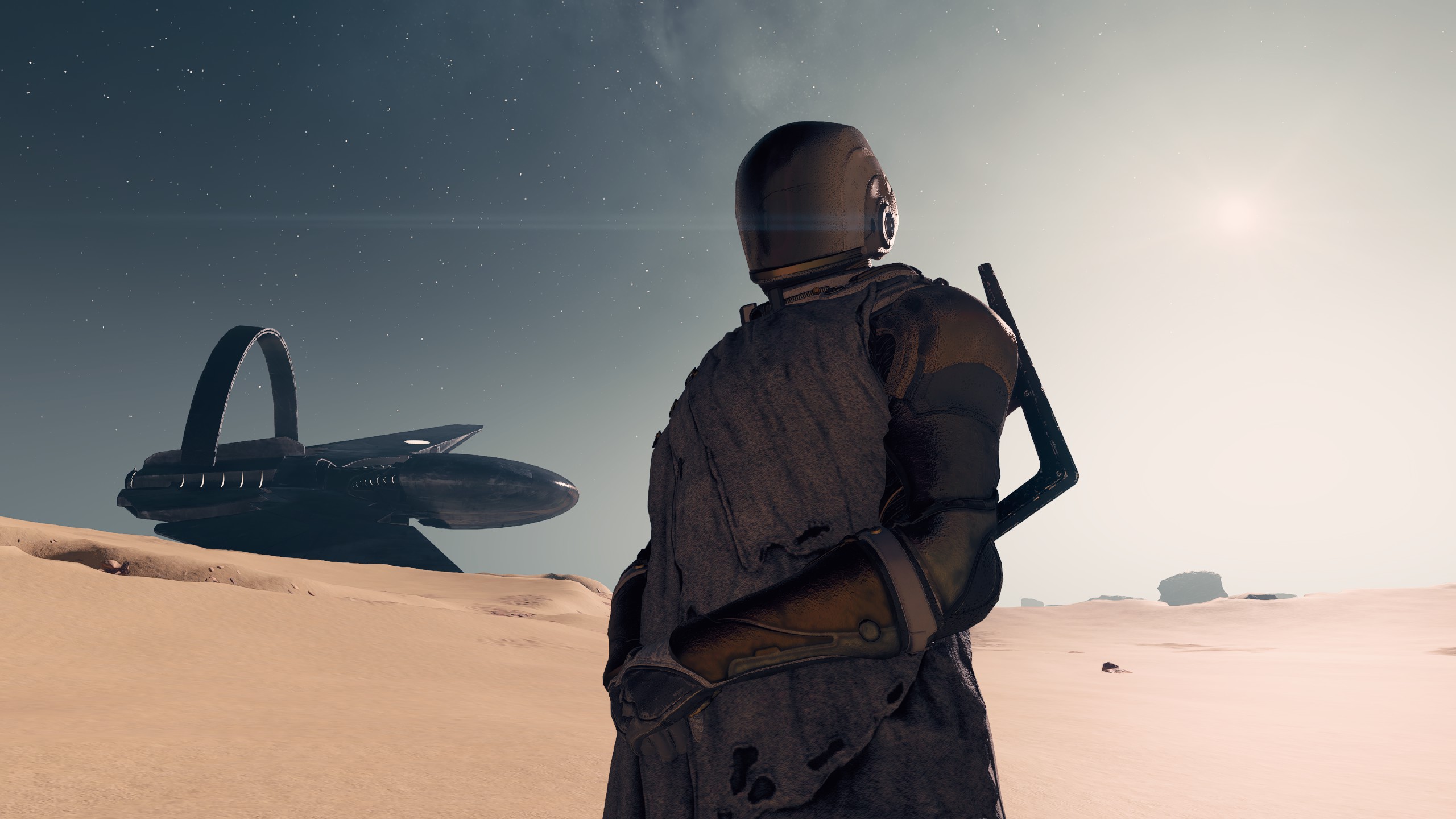
"Open world" is basically a four-letter word these days, synonymous with bloat and filler. But where some open world RPGs cram their maps with icons representing collectibles and repeatable activities, Bethesda RPGs give us maps where the icons are just places. Each one is a town or a landmark or a dungeon, a place worth visiting rather than a job to complete and then cross off the checklist.
That's part of what keeps us coming back to them, though it's not the only thing. Being able to choose various factions to align with, homes to build, and mods to apply means they become personal expression. Skyrim retooled to play like Sekiro and look like anime is nothing like Skyrim with a vanilla-plus mod loadout and a hero whose only ambition is to adopt every orphan, while Fallout 4 with Sim Settlements 2 installed is nothing like a Fallout 4 playthrough where you avoid Preston Garvey like he's radioactive and concentrate on finding your son.
Bethesda's RPGs are large, they contain multitudes. We're also large and contain multitudes, which is why our opinions are the way they are. Here's what we think of every Bethesda RPG, ranked from worst to best.
Starfield
Jody Macgregor, Weekend/AU Editor: When Starfield leans into "NASA punk" realism, it's realistic in boring ways. Space is empty, planets are dull, aliens aren't sapient. Then it hands you a bunch of unrealistic magic space powers and manages to make them boring as well. They're acquired via floating around in abandoned temples, an activity so tedious the mod that deletes them has been downloaded thousands of times, and they work just like the dragon shouts in Skyrim. At this point, I'm fully expecting Fallout 5 to hand out mutant powers that let you reverse gravity and slow time by pressing the Z key.
Tyler Wilde, Executive Editor: That's what the console commands are for! Except they're not doing much for me this time, outside of some brief fun spawning botanist armies. I think Skyrim is great if you treat it like an ambient fantasy music playlist—just wander around, enjoy the vibes, maybe hop up a mountain or accidentally contract vampirism—but I haven't been delighted enough by Starfield's setting to want to spend more time in it, either to play seriously or goof off. I like all the cubed food and the NASA look to the space gizmos, but magic space artifacts aren't as good a hook as dragons. I might need to give it a more serious go, as I've learned from others at PC Gamer that its first city is its worst, and it gets better 10-or-so hours in.
Shaun Prescott, AU Editor: Starfield is already a distant memory for me, but what I remember most distinctly is the tedium of inventory management, the bizarre spacefaring user interface, and the fact that I had a mysterious faction quest giver follow me for 70% of my playthrough (I started her quest and never finished it: sorry, Emma Wilcox). It's almost sad to say, but the suspension of disbelief required to really invest in Bethesda games of yore is a muscle that the best modern RPGs don't require me to flex. Starfield just feels antiquated and, sadly, a bit dull. It felt more like a bloated shooter than an expansive, decision-oriented RPG.
Fallout 76
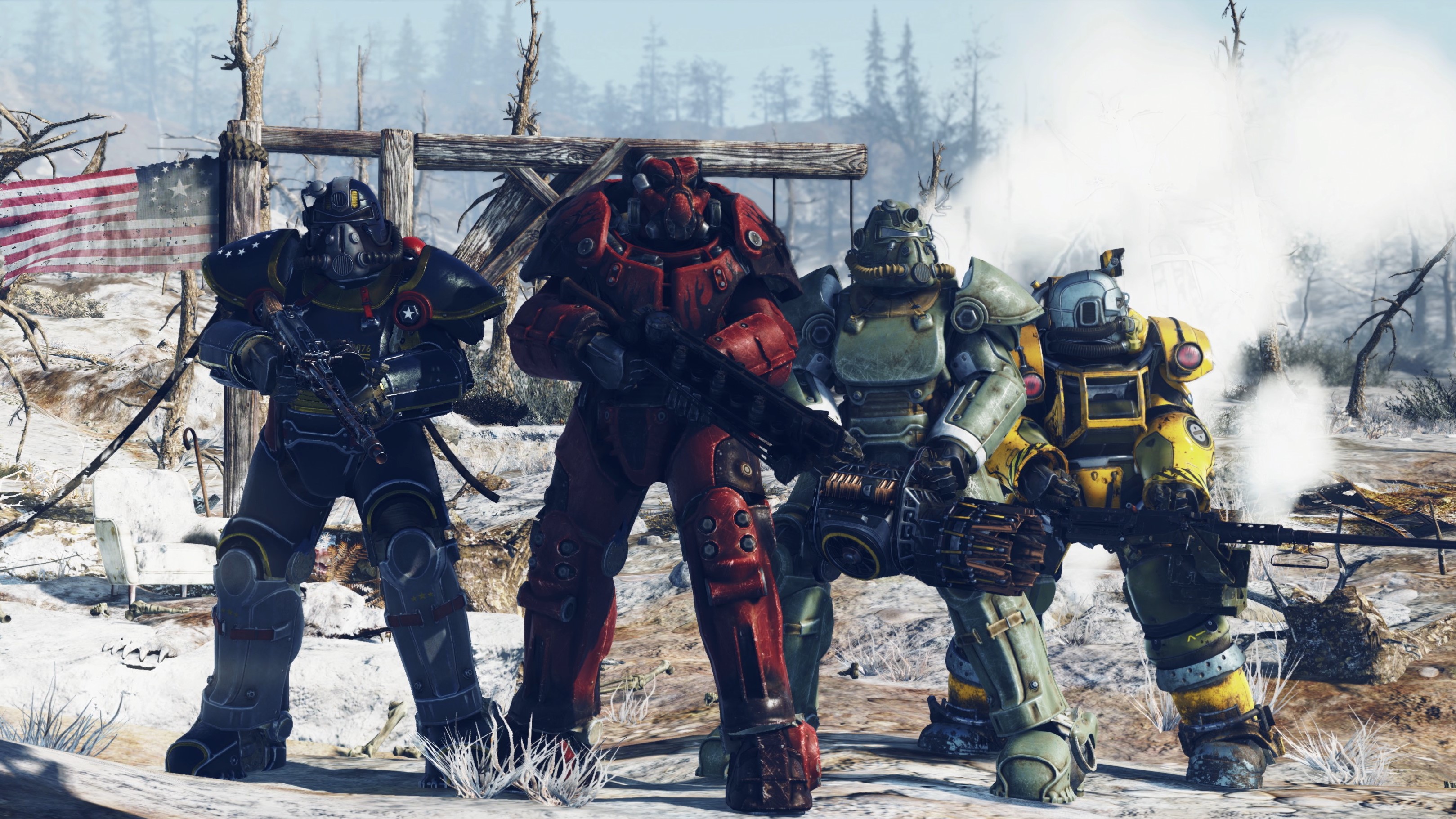
Chris Livingston, Senior Editor: It's come quite a long way since its extremely shaky start, and Bethesda has done a lot to repair its early mistakes, such as the baffling choice not to include NPCs or dialogue choices. But that's still not enough to bring me back to the online version of the Fallout universe. I'm tempted occasionally—the game has expanded to new parts of the country with expeditions to Pittsburgh and Atlantic City—but a grindy MMO, even a good one, simply isn't what I want from a Fallout game. I want a singleplayer RPG. It was bold to break the formula, but I still would have preferred Fallout 5.
Keep up to date with the most important stories and the best deals, as picked by the PC Gamer team.
The Elder Scrolls: Arena
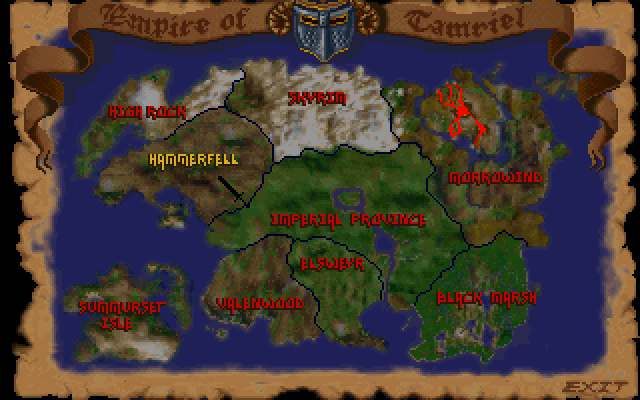
Jody: Back in 1994, the first Elder Scrolls game theoretically let us explore all of Tamriel. I say theoretically, because Arena's overworld map was an endless procedural landscape with nothing in it. When you leave a town the algorithm will plot out roads and trees forever, or at least until the game crashes, but the other towns on the map never appear. You have to fast-travel to reach them.
Likewise, the towns are stuffed with repeated shops and NPCs who have names pulled together from random tables. It's all guff you quickly learn to ignore in favor of the hand-crafted plot dungeons, which are creepy and dingy and easily the highlight of Arena. But the possibility of what that world between dungeons could contain is what sparked the imagination, and filling it with snarky dark elves and friendly cat merchants would give Bethesda something to do for years to come.
The Elder Scrolls Online
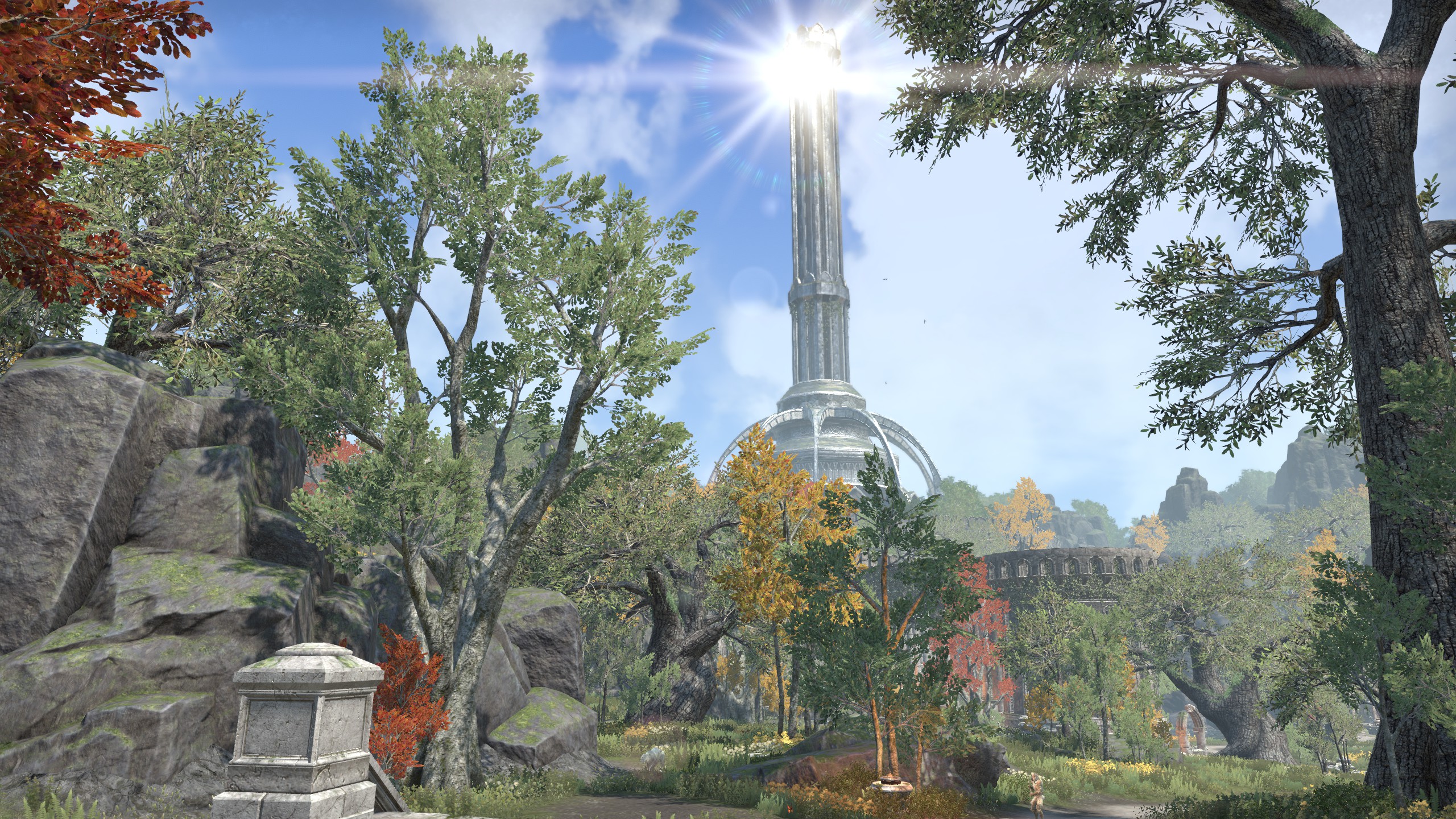
Jody: The Elder Scrolls Online has changed a lot since its launch, and in purely mechanical terms it's better now than it was then. It's also kind of messy, an overgrown garden where you stumble into quests only to learn they're the prologue for DLC you don't own and you need to follow a player-made map through the zones to experience the story in any kind of sensible sequence.
Even the old tutorial, where you wake up in Coldharbour without a soul and meet John Cleese, is now an optional thing you have to go out of your way to find despite random NPCs throughout the rest of the game expecting you to know you don't have a soul and it's a whole thing. The Elder Scrolls games normally cater to my severe case of restart-itis, but returning to ESO to try a new class or expansion is off-putting every time.
Fallout 4
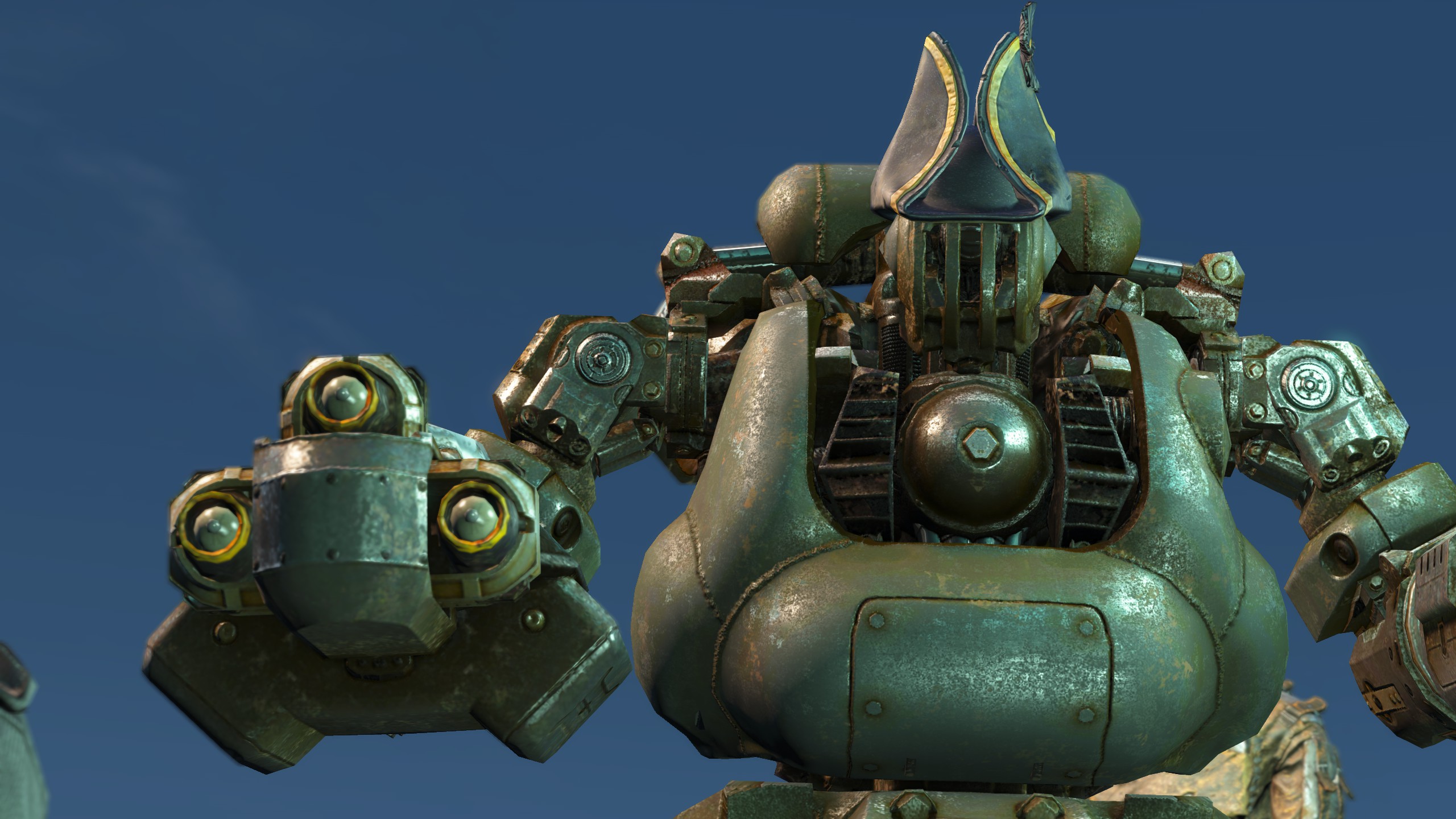
Ted Litchfield, Associate Editor: I've always been really down on Fallout 4 for its simultaneously underwhelming and overbearing main quest, as well as its overreliance on procedurally generated "radiant" missions at the expense of the handcrafted Bethesda side stories I really dig.
I still think of it fondly, though. The fact that it has some of the best combat Bethesda's ever done certainly helps the game go down smooth, but there's also just something about the Commonwealth. Postwar Boston's clear blue skies and bare trees always give me this impression of the perfect crisp fall day, and I've enjoyed coming back to that more than the vomit-green brutality of Fallout 3—or the Fallout 3 DLC that was just a really bad Call of Duty level with a weird bone to pick against China. I can't believe I wrangled Games for Windows Live just to subject myself to Operation Anchorage back in the day.
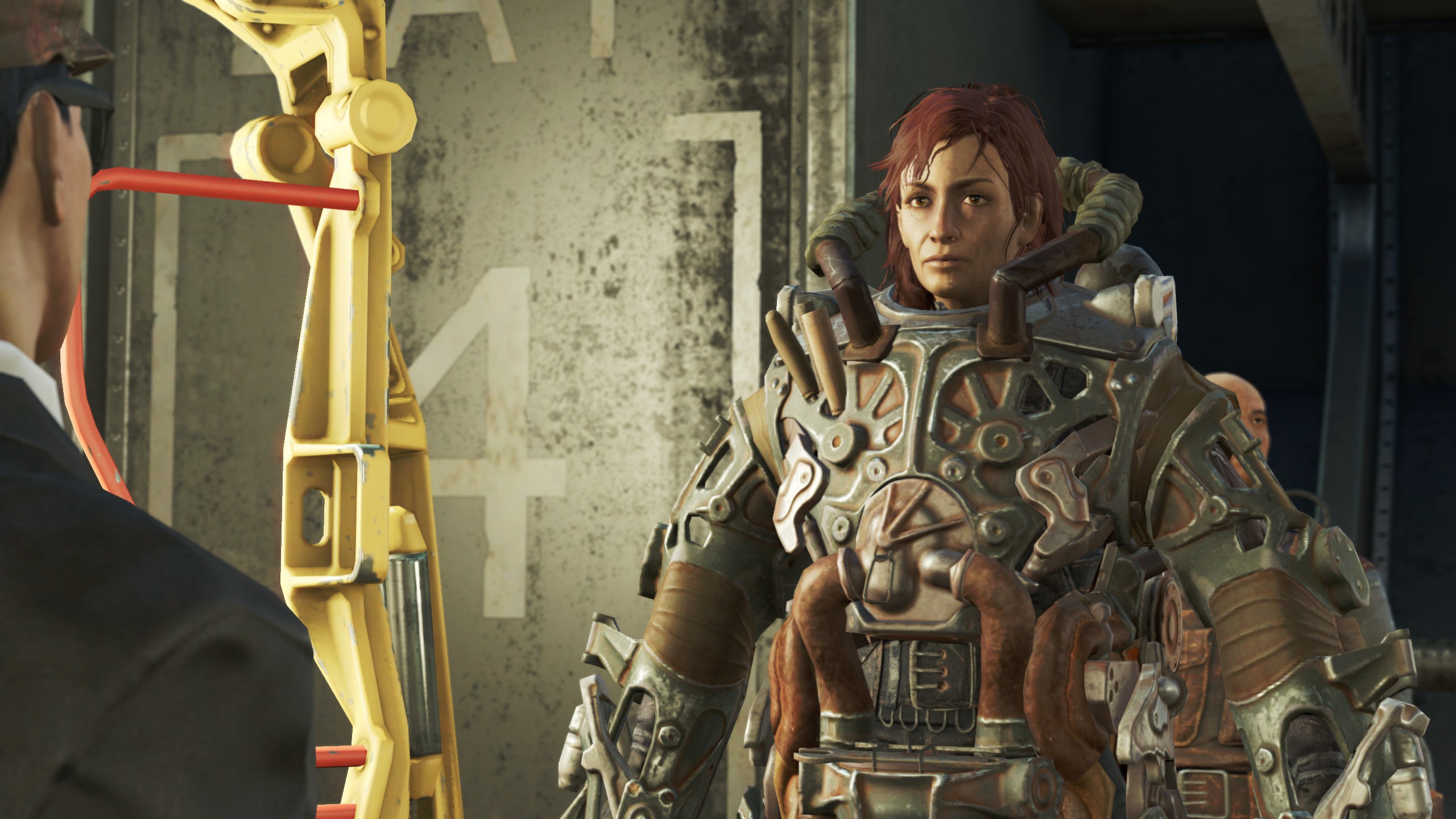
Jody: I liked Skyrim's Hearthfire DLC just fine, but I didn't expect that model of resource-gathering and crafting to become a core part of Bethesda's RPGs afterwards. If you're not into building and protecting settlements or upgrading a garage full of power armor suits like a collection of custom cars you restore on weekends, Fallout 4 is hard to love.
It nailed one thing I care about though, and that's companions. Bethesda RPGs have always struggled to have more than a handful of memorable NPCs, and the ones we fixate on are more likely to be memes like the Adoring Fan or Lydia than actual interesting characters. But in Fallout 4, Nick Valentine, Codsworth, and Cait the Oirish pit fighter became my ride-or-die homies. Starfield's cast of disapproving dorks have got nothing on Fallout 4's companions—except for Preston Garvey, I guess. There's always one.
The Elder Scrolls 2: Daggerfall
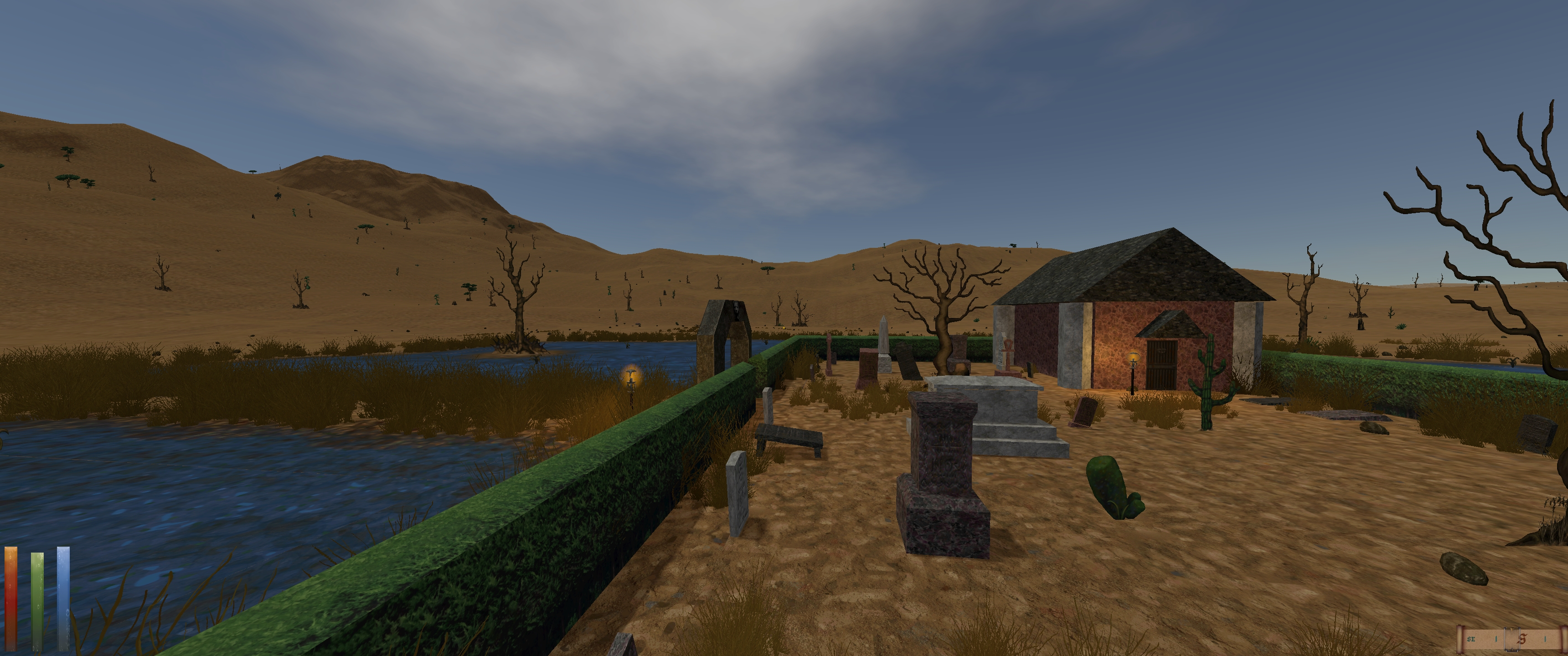
Andy Chalk, NA News Lead: I can't claim to be an Elder Scrolls originalist—I never played Arena—but I did spend countless hours in Daggerfall, and while it might be going a little far to say it changed my life, it's really not that much of a stretch. Nostalgia is obviously a big factor here, but the ambition and player freedom of Daggerfall in the mid '90s was nothing short of jaw-dropping. Arena may have established the rough template for The Elder Scrolls we know today, but Daggerfall is where it was chiseled into granite. Systems have changed, the worlds have shrunk (Daggerfall had a whopping 15,000 towns, villages, and dungeons to explore, which in hindsight was maybe a bit much), and the lore expanded, but the "do anything" approach that's the hallmark of the series is rooted firmly in Daggerfall.
I'm not so enamored with Daggerfall that I'm blind to its shortcomings, which are many. Randomized dungeons were crafted from a noticeably limited selection of elements—hallways, platforms, rooms, that sort of thing—and there was generally no coherence to the assortment of monsters roaming around inside them. The usage-based skill system was way too easy to game, and combat was not great, even by TES standards. Teases of lost cities and mythical monsters in Daggerfall's numerous books turned out to be pure window dressing (believe me, I looked) and similarly, the weather effects were magical—I can still visualize the flakes coming down as I rode my horse across an open field—but I was disappointed to discover they had absolutely zero bearing on the gameplay.
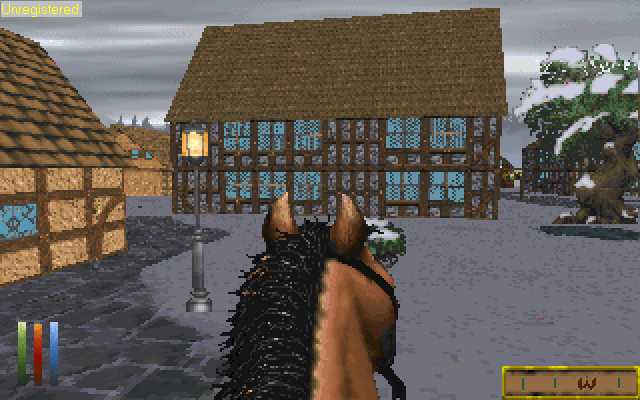
Daggerfall was also infamously buggy at launch, although Bethesda moved quickly—for the time—to fix the worst of them. (And if you weren't online and were thus unable to download the patch, you could call the studio and they'd mail the patch on a diskette. Man, I miss those days.) And, like every other Elder Scrolls RPG, the main quest was easily forgettable. I honestly can't remember what it was about or why I was there: Doing a solid for the Emperor's dead pal's widow or... something?
But the scale and freedom Daggerfall offered made all of those flaws easy to overlook. It didn't matter that the narrative was paper-thin, that the world was jumbled and janky, and that it had a nasty tendency to crash, because the moment I was out the door I was a roaming hero for hire, wandering where I wanted, doing what I wanted, and not really caring what was going on in the world—just happy that I was living in it. It might seem routine now, but in 1996 it was unprecedented.
Sure, it wouldn't fly these days, even for me: I tried the updated Daggerfall Unity version on GOG not too long ago, and it didn't take long before I said "no thanks" and moved on. But in its time, there was absolutely nothing else like it. Selecting it RPG of the Year, Computer Gaming World magazine said Daggerfall "is not perfect, but it is revolutionary." I can't think of a more apt description.
Fallout 3
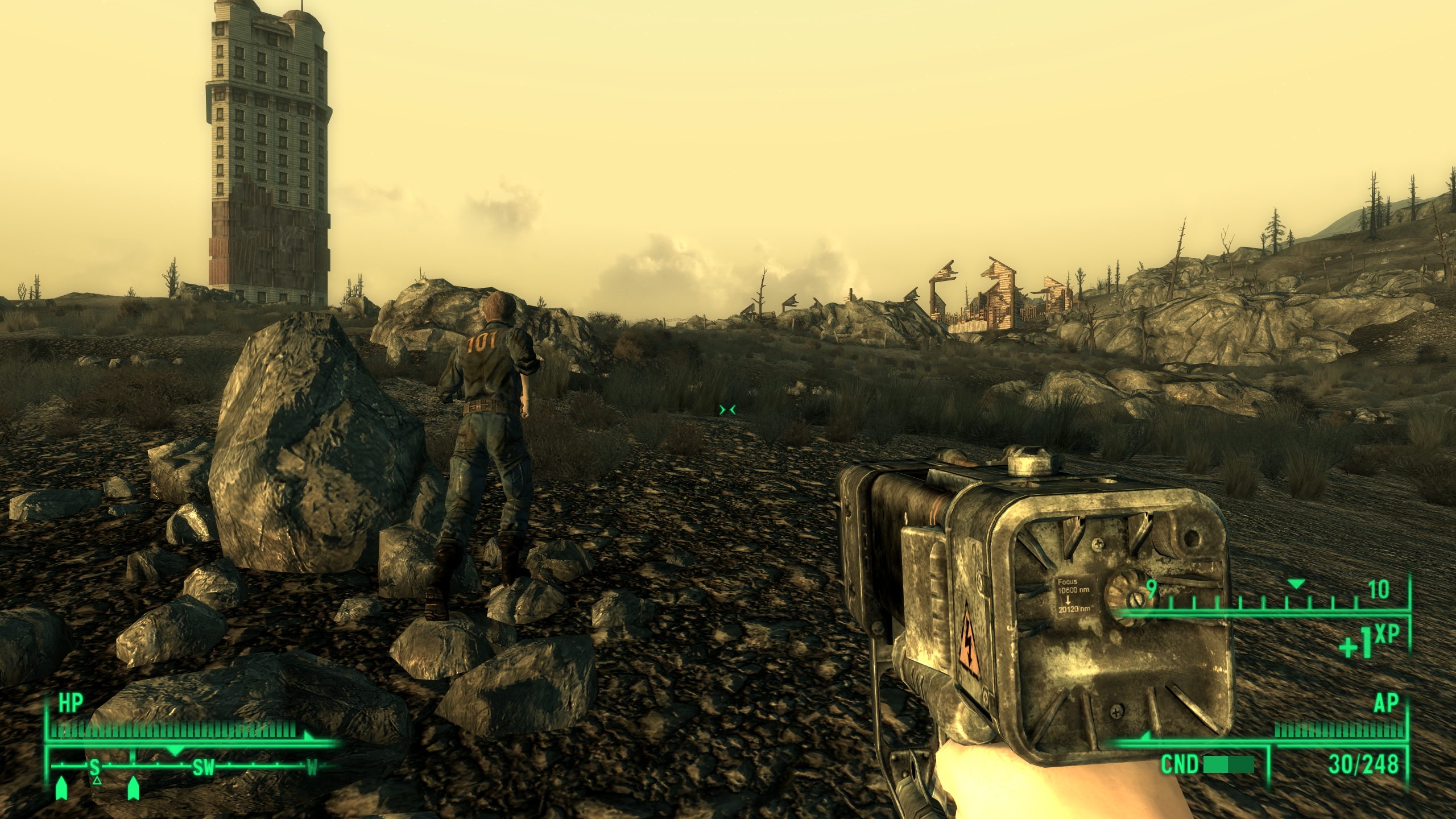
Jody: I replayed Fallout 3 this year, and the first half really is great. When you're fresh out of the Vault at level fuck-all, running away from fire ants and drinking toilet water to survive, it's super intense. The main questline makes you feel invested during the prologue, and keeps you that way through the bonkers Tranquility Lane sequence, which is like the Twilight Zone videogame we never had.
After that, it does kind of fall apart. You quickly become an unkillable god who murders super mutants for breakfast and cripples deathclaws for lunch, and the ending is an all-time low, easily ranking alongside Mass Effect 3 and System Shock 2 in terms of how far beneath expectations it falls. The DLC's uneven, but then Point Lookout did a lot to relight the spark with its island of hallucinogenic redneck weirdness, and the difficulty ramped up again too. I still have mixed feelings about Fallout 3 because of how much I loved the first game, but there are plenty of positives alongside my gripes.
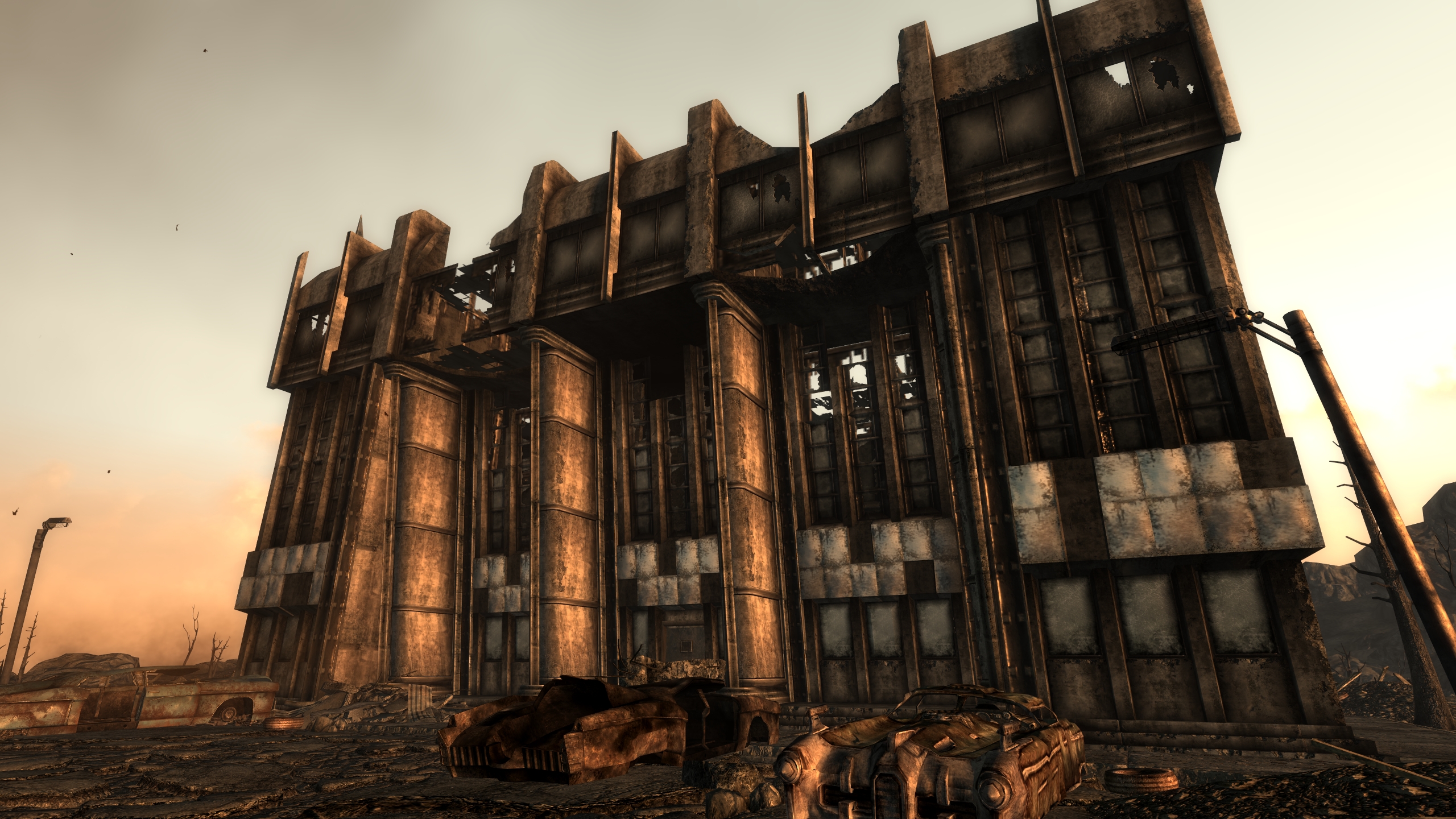
Andy: Yeah, Fallout 3's ending was dumb as hell. I didn't care, though, because Fallout 3 was a world. Stepping out of the vault for the first time, in first-person, was absolute magic. It worked, it ticked all the boxes, it was a place that looked and sounded and felt like Fallout, and I was in it!
The early days of survival in that blasted hellscape were terrifying and thrilling, but when I eventually grew into a wasteland superhero dressed in a rumpled suit and a fine hat and packing a sniper rifle the size of a Bofors gun, it felt right. I earned that shit, baby, and I was not going to feel bad about putting brains on pavement wherever and whenever necessary. It was my post-nuclear playground, and I loved it. New Vegas and Fallout 4 may have been bigger and better and more open, but they could never be first—that was Fallout 3, and for that alone, nothing else will match it.
The Elder Scrolls 5: Skyrim
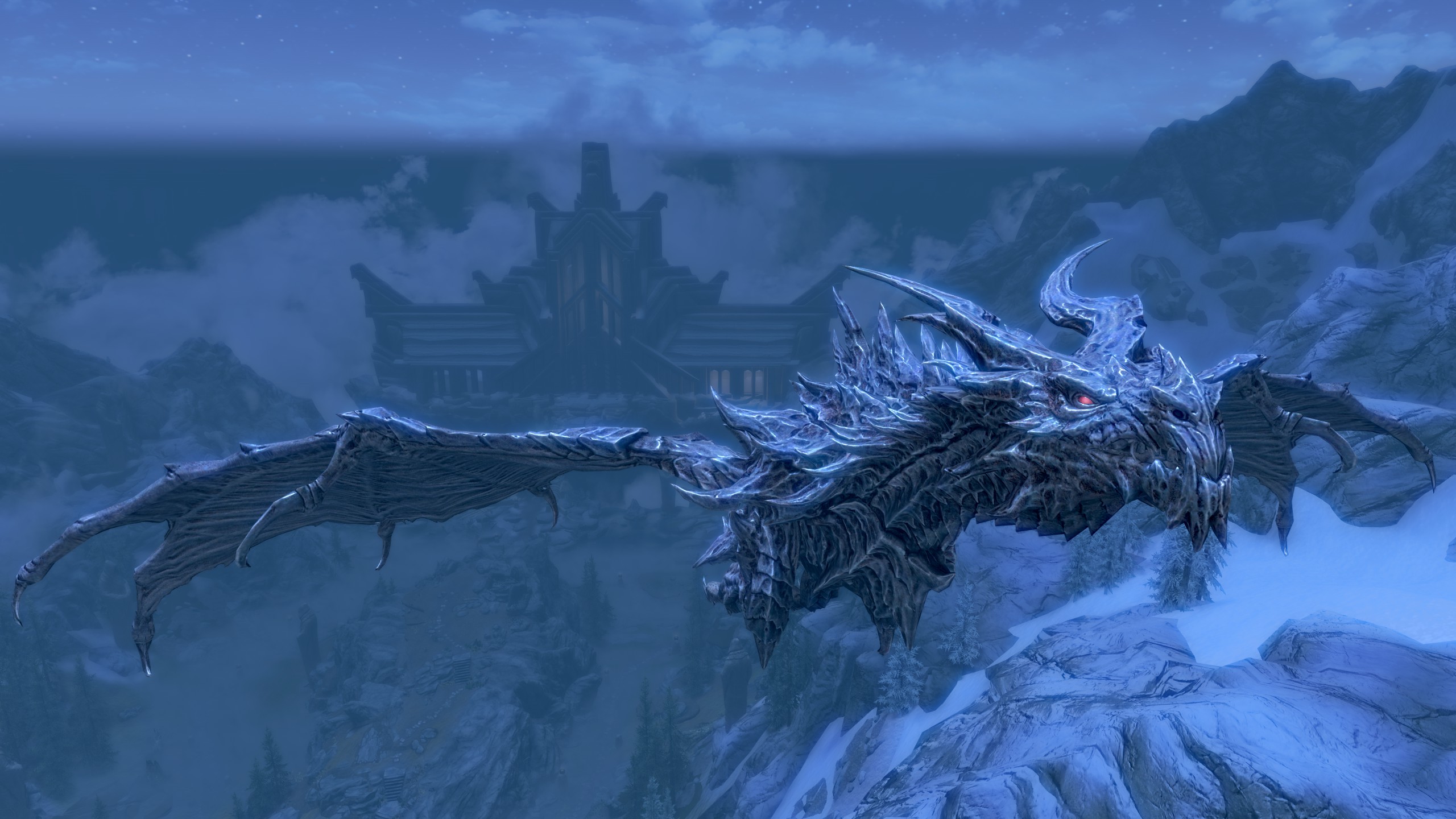
Jody: I've restarted Skyrim more than any other game, creating a whole pantheon of characters for different mod loadouts and playthrough styles. Installing survival mods and ignoring fast-travel to cross Skyrim on foot gave me a real appreciation for it as a place to explore. Like Fallout 3's Capital Wasteland there's always something on the horizon to check out, and when you spend time in them the biomes feel meaningfully different, from endless snowdrifts to weed-ridden swamps to foggy mountains.
Other playthroughs have been dedicated to questlines: fighting in the Civil War; joining the Companions; rebuilding the Dawnguard; selling my soul to every Daedric Prince I can find. This is one place where Oblivion edges ahead, with the sidequests for the Dark Brotherhood and Thieves Guild feeling more like Hitman levels or miniature immersive sims than Skyrim's blandly straightforward tests of your Sneak skill.
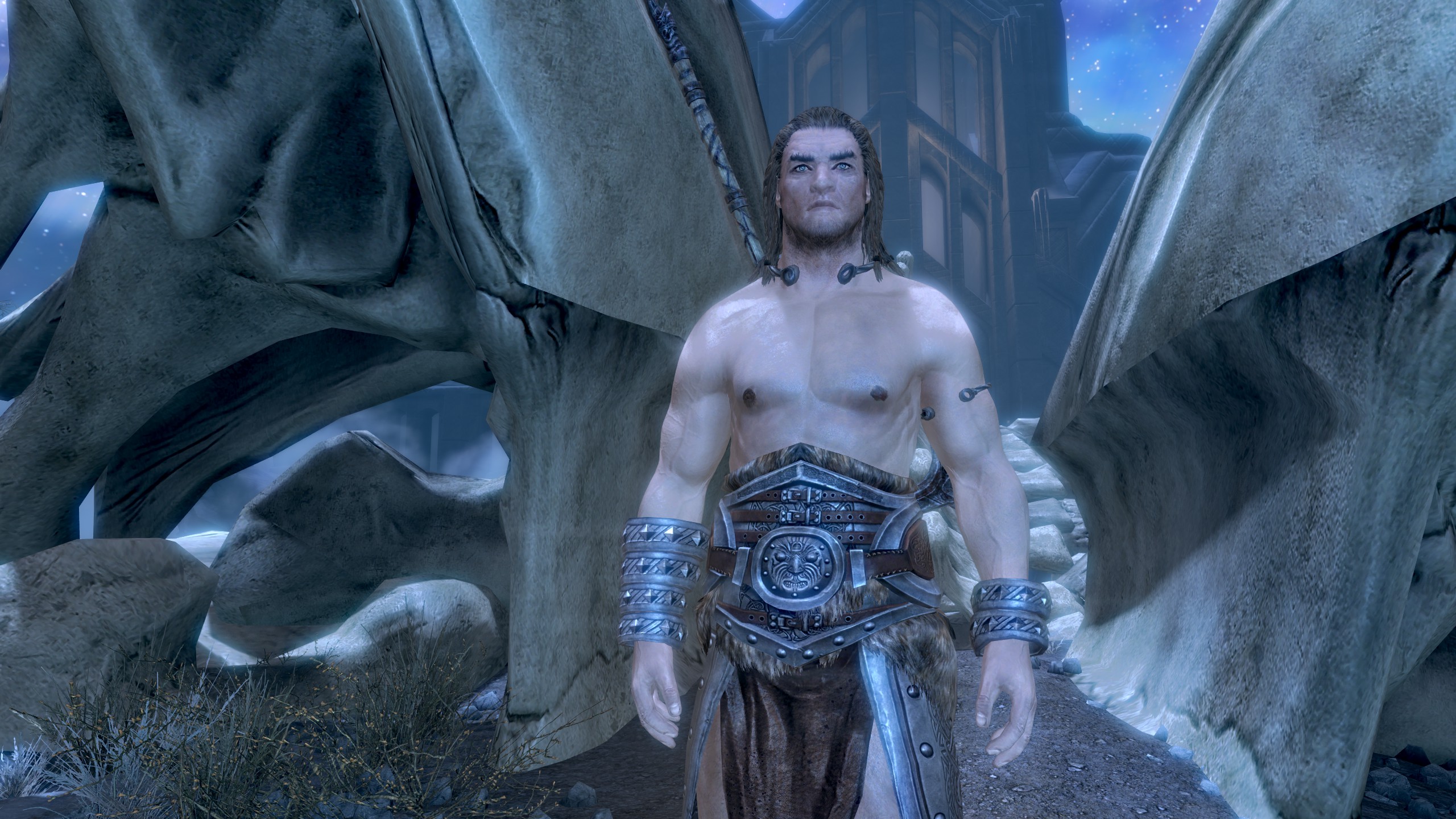
I will stand up for Skyrim's main quest, though. Where Morrowind lets you decide if you want to embrace being the chosen one and Oblivion says the chosen one is actually some other dude and you have to nudge him into accepting it, Skyrim goes whole hog on making you the heir of godlike dragon powers who scales mountains and travels to the land of the dead. A generation of players traumatized by how rubbish Oblivion's central questline was ignored that in favor of Skyrim's sidequests, but if you embrace being a magical champion who shouts people off cliffs then Skyrim's main questline is a hoot.
Shaun: Skyrim lost my attention pretty quickly in 2011 and it was all Dark Souls' fault. I've picked it up a few times in the interim, but it really blossomed for me on a repeat playthrough in 2020. It's a beautifully atmospheric game. The score is magisterial, with a tint of melancholy, and the dungeons are so rich and moody. It's just a nice world to spend some time in, which to me is the most important quality in a 50+ hour RPG. No other Bethesda game has really hit all the right notes for me. (Fallout: New Vegas is a masterpiece, but not coincidentally, was developed by Obsidian).
The Elder Scrolls 4: Oblivion
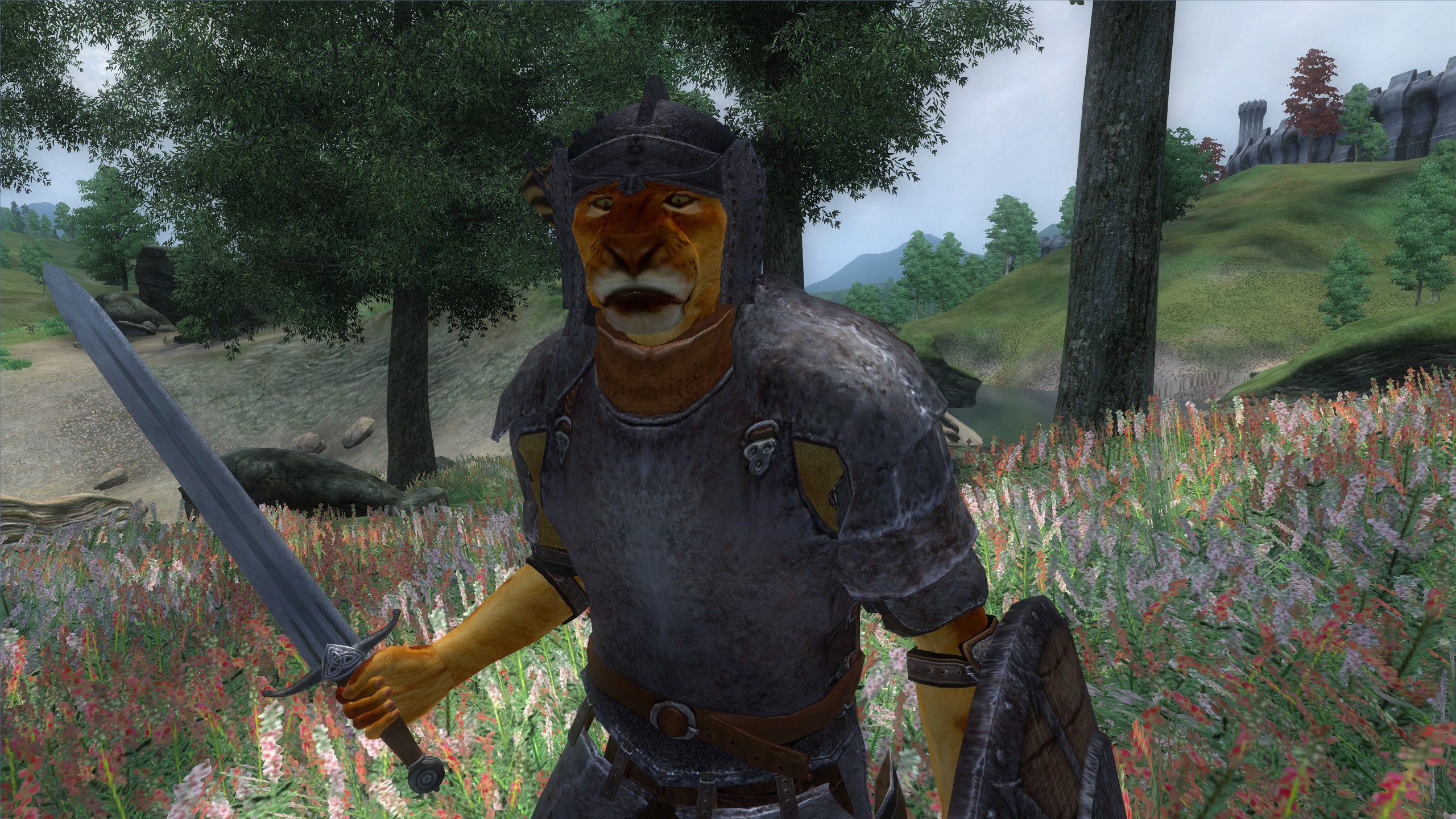
Ted: I've seen Oblivion get a lot of flak over the years for having a more generic fantasy setting after the fever dream of Morrowind, but I find Oblivion's hazy, stately vision of Cyrodiil has its own singular charm. Everything about Oblivion's presentation makes it feel like tucking in under a warm blanket, which tees up creepy curveballs like the Dark Brotherhood to be all the more impactful.
On the subject of the Dark Brotherhood, Oblivion is when Bethesda got good at making side quests. Compare the Dark Brotherhood's lite stealthing and twisty assassin intrigues to Morrowind assassin guild Morag Tong's "pick a fight with a guy at a bar" contracts and it's no competition. Don't even get me started on the Oblivion Thieves Guild and its phenomenal conclusion, The Ultimate Heist. While Bethesda's never made another main quest as good or interesting as Morrowind's, its side story game has improved dramatically.
Chris: Oblivion's "the world levels with you" system probably wouldn't hold up today, but at the time it was just another way for Bethesda to ensure your absolute freedom. Go anywhere, do anything, be anyone: what sounds like RPG clichés now were actually true, and roleplaying an utter nobody could suck up just as many hours as playing the prophesized hero.
The Elder Scrolls 3: Morrowind
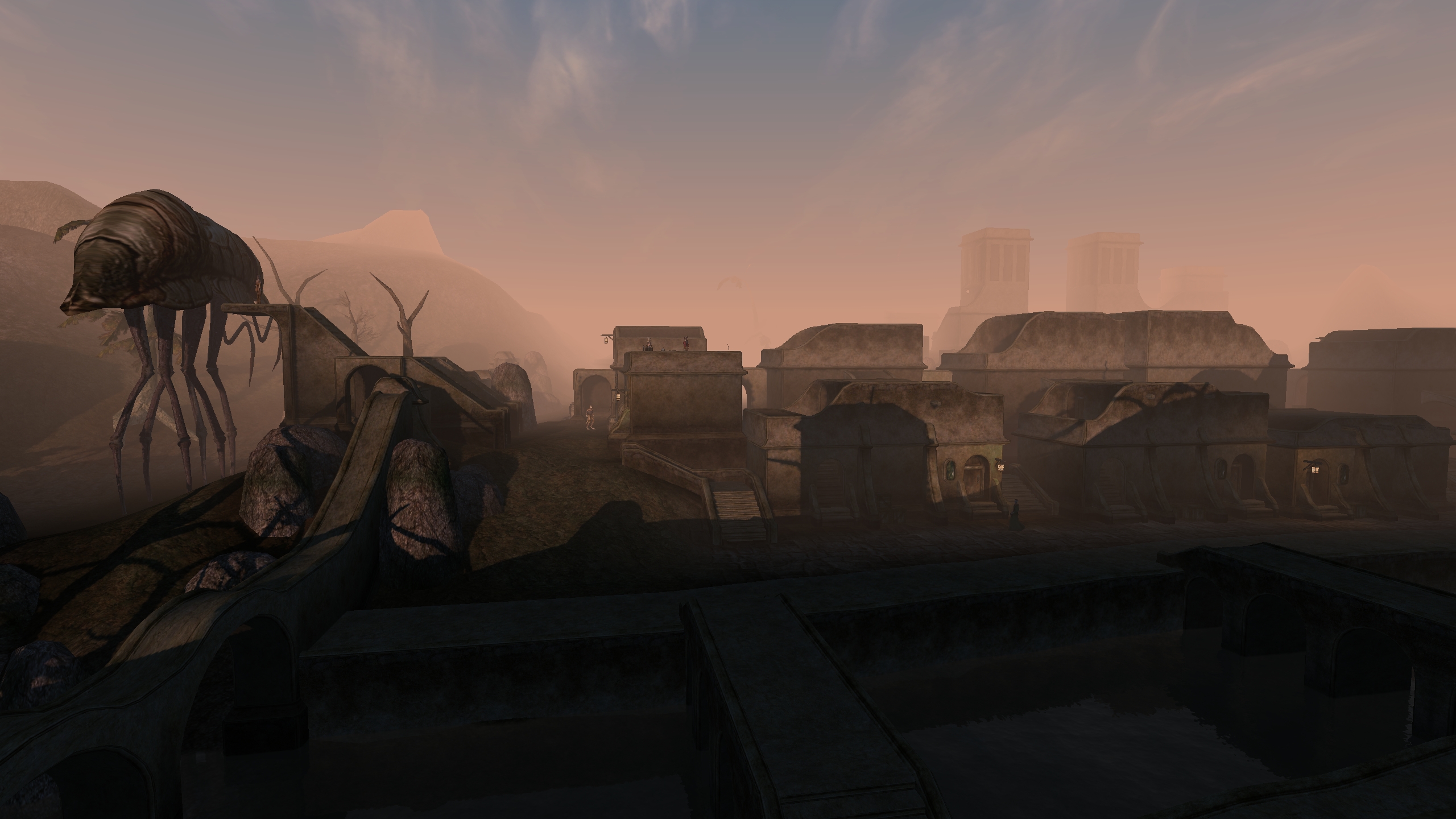
Joshua Wolens, News Writer: Mention Morrowind in a crowded room and it won't be long before someone brings up the mushrooms. "The size of trees!" they'll cry, using the mammoth fungi as a synecdoche for Morrowind's weirdness as a whole. And yeah, it was weird, especially compared to Oblivion's rolling Tolkienian plains and Skyrim's "here's Norway, enjoy" aesthetic, but that's not all Morrowind was. This is the last game in Bethesda's catalog where the studio felt like it had something it wanted to say, and not just fantasies it wanted to fulfill.
There was little black and white in Morrowind. This was a game that wanted genuinely to reckon with the contradictions of imperialism, that asked what it meant to choose sides in a land whose native aristocracy was made up of racist, slaveholding wizards and whose progressive bourgeoisie was all too willing to become compradors in service of an encroaching empire. It questioned prophecy if tribal beliefs could be weaponized by states to further subordinate their believers. And it asked, "What if we made the most annoying combat system possible but also let players snap it over their knee with alarming ease and like 12 Fortify Intelligence potions?"
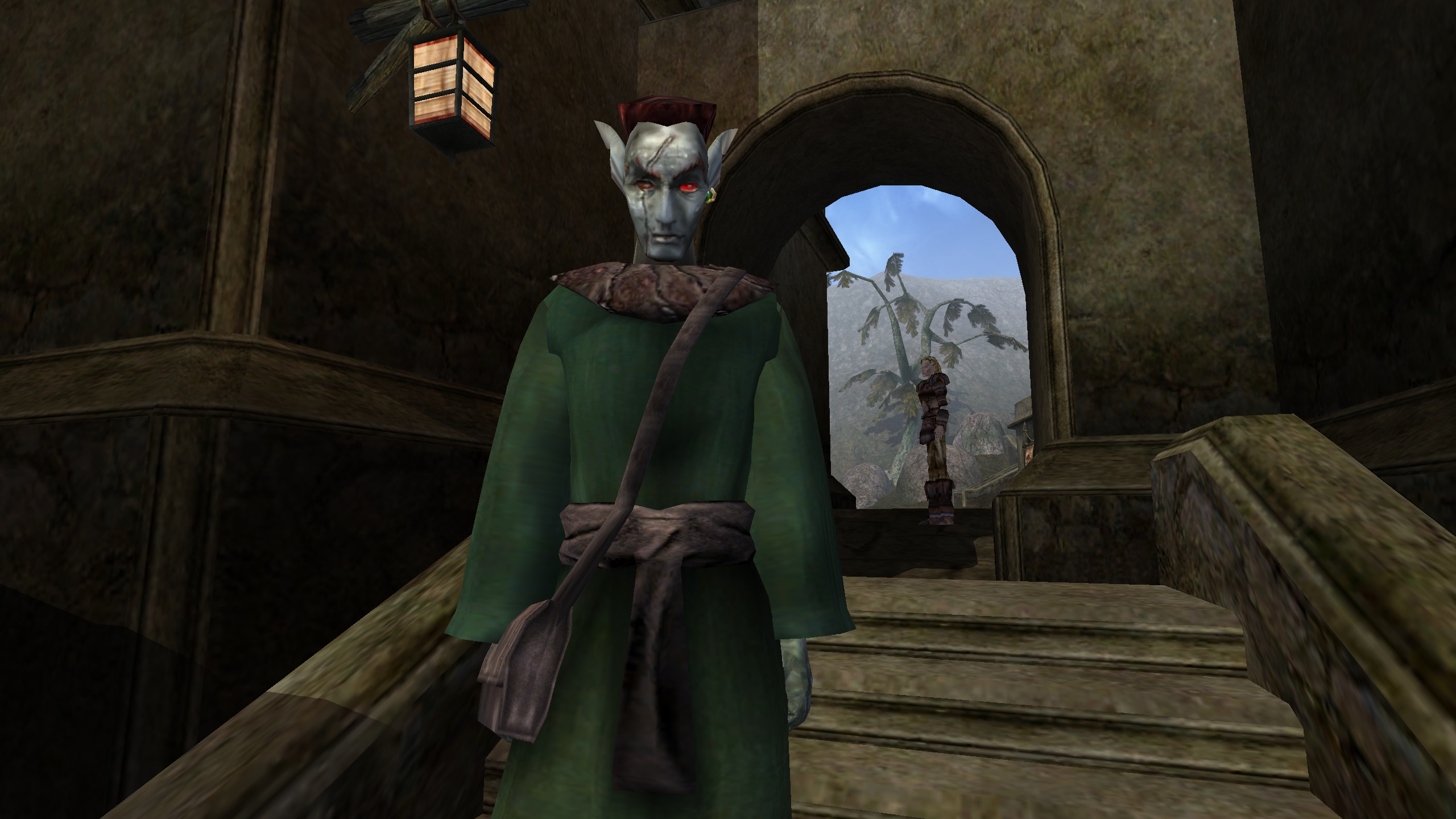
Important questions all, and while I love Oblivion, enjoy Skyrim, and like Fallout 4 more than I ever expected to, no Bethesda game since has ever even seemed interested in tackling topics as weighty as the ones Morrowind launched itself into with gusto. I suppose leaving that stuff behind has made the studio more money than god at this point, so who can blame it, but I miss the esoteric Bethesda of old.
Jody: Are you really the Nerevarine of prophecy? Is Vivec everything he claims to be, or a murdering fraud? Much to think about.
Andy: I'm basically just going to repeat what Josh said. Bethesda went into Morrowind like a studio with something to prove—it came out of it like a studio with something to lose. Oblivion and Skyrim are more polished, more refined, more "accessible," and so much less interesting: They're paeans to caution, perfectly fine but utterly lacking the creative daring that made Morrowind such a milestone RPG. And that's really not a criticism of either of those games—Morrowind was just that damn good.

Jody's first computer was a Commodore 64, so he remembers having to use a code wheel to play Pool of Radiance. A former music journalist who interviewed everyone from Giorgio Moroder to Trent Reznor, Jody also co-hosted Australia's first radio show about videogames, Zed Games. He's written for Rock Paper Shotgun, The Big Issue, GamesRadar, Zam, Glixel, Five Out of Ten Magazine, and Playboy.com, whose cheques with the bunny logo made for fun conversations at the bank. Jody's first article for PC Gamer was about the audio of Alien Isolation, published in 2015, and since then he's written about why Silent Hill belongs on PC, why Recettear: An Item Shop's Tale is the best fantasy shopkeeper tycoon game, and how weird Lost Ark can get. Jody edited PC Gamer Indie from 2017 to 2018, and he eventually lived up to his promise to play every Warhammer videogame.
- Tyler WildeEditor-in-Chief, US
- Ted LitchfieldAssociate Editor
- Christopher LivingstonSenior Editor
- Shaun PrescottAustralian Editor
- Joshua WolensNews Writer

